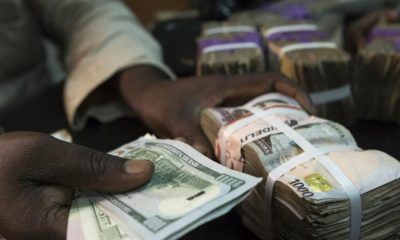The August 2023 Nigeria Macroeconomic and Market report by Comercio Partners, an investment banking firm focused on trading global and local fixed income securities and equities, has revealed that Naira’s depreciation can be attributed to a complex interplay of various factors including Liquidity and demand constraints.
It said that within Nigeria’s financial system, liquidity constraints posed a formidable challenge. As liquidity levels fluctuated, so did the Naira’s stability, adding uncertainty to the markets.
The report also noted that the dollar’s entrenched position in global transactions and foreign exchange reserves makes it challenging to replace with another currency, despite its flaws, as a result, the Naira and other frontier market currencies continue to face pressure amid the dollar’s dominance.
According to the report, the depreciation of the Naira during the month of August was exacerbated by the incapacity of Nigerian banks to meet the surging demand for dollars, leading buyers to resort to the parallel market.
READ ALSO: CBN revokes licenses of 2,698 BDC operators
The report noted that in the official market, August started with a bang as the Naira reached a high of N789.08/$1 on August 1st, and then later appreciated to N738.18/$1 by August 30th.
“This marked a depreciation of roughly 0.76 per cent from the July closing rate of N756.94/$1, eventually settling at N762.71/$1 by month-end. The Naira’s erratic behaviour left both investors and market observers scratching their head
They added that the Naira faced a sharp decline, weakening to N930 to 1 dollar in the unofficial foreign exchange market, known as the parallel market, as the US dollar steadied near six-month highs.
The report also noted the report from JP Morgan which revealed a startling revelation about Nigeria’s net foreign exchange (FX) reserves.
“The report unveiled a complex web of financial instruments, including foreign exchange forwards, securities lending, currency swaps, and outstanding contracts, which had eroded Nigeria’s net external reserves to an alarming low of $3.7 billion by the end of 2022.
READ ALSO: Forex losses impacts Nigeria’s NGX industrial sector
“This revelation sent shockwaves through the market, resulting in a short-term repricing of Nigerian international bonds and exacerbating the Naira.
They added with the revamped framework, BDC operators are now restricted to a permissible range of -2.5 per cent to +2.5 per cent of the Nigerian Foreign Exchange market window’s weighted average rate from the preceding day
“This move aims to address the significant backlog of unmet foreign exchange demand, estimated at a staggering $10 billion. These FX backlogs have inflicted heavy losses on many firms and disrupted the economic ecosystem.”
According to experts at Commercio Partners, CBN’s efforts to address liquidity challenges and enhance transparency via the revised BDC operational framework may bring stability, adding that vigilance and adaptable strategies are advised for navigating potential foreign exchange landscape shifts.

 Health1 week ago
Health1 week ago
 News1 week ago
News1 week ago
 Trends2 days ago
Trends2 days ago
 Latest1 day ago
Latest1 day ago
 Health1 week ago
Health1 week ago
 Crime1 week ago
Crime1 week ago
 Crime1 week ago
Crime1 week ago
 Energy6 days ago
Energy6 days ago








